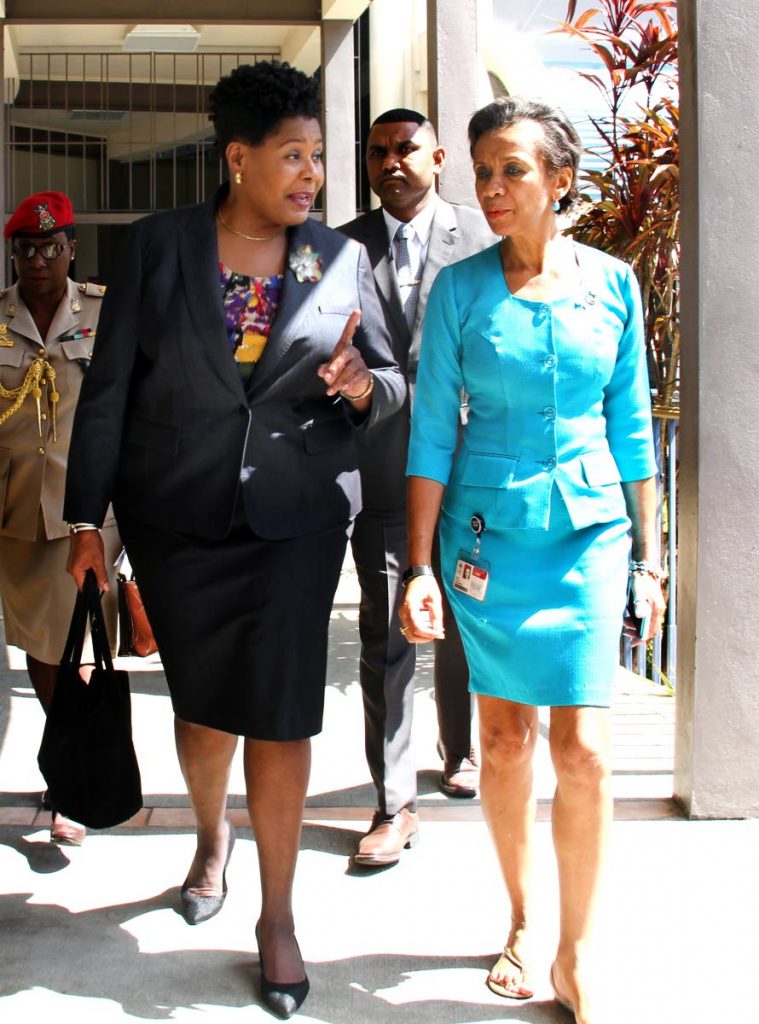More girls than boys studying medicine

More girls than boys are now pursuing studies to become medical doctors. In fact the ratio at the medical schools in Jamaica and TT is as high as 2:1 according to UWI lecturer and honorary Consul for the Bahamas, Dr Monica Davis. Dr Davis made the observation to reinforce her point that science and technology was no longer the exclusive domain of men.
“Once upon a time only men became scientists, only men became engineers and doctors and only men were hired for ICT," she said. “Once upon a time women and girls could only dream of becoming a part of the intriguing world of science. This is the 21st century and that fairy tale is over. No longer are there only male scientists.”
Dr Davis was speaking at a one-day symposium titled “Women and Girls in Science – Towards the 17 Sustainable Development Goals” at the UWI School of Education auditorium, St Augustine, President. Paula-Mae Weekes, Campus Principal Prof Brian Copeland and students from several schools across TT attended the event.
Noting what she described as a gender shift, Davis told the symposium that recent research from the University of Rochester and the University of Pittsburgh revealed that girls and boys showed no cognitive differences in mathematical ability during infancy and early childhood, across multiple tasks.

She said, “Pre- and primary school education, in my mind should aim to satisfy eager and inquiring minds in their quest for new knowledge, through the Science and Technology lens, helping them grow in their dreams and understand the limitless possibilities that lie ahead of them, even at this early stage.”
Davis said investing in Science and Technology training or re-training of pre-primary school teachers had the potential to broaden the knowledge base of teachers, and it would also increase their engagement and acceptance of the behaviour of their charges.
She said the training can revolutionise the pre/primary school classrooms, and re-ignite children’s passion for Science and Technology.
“More investment should be made in Science and Technology training to restructure the primary school curriculum, which we now know should incorporate Science and Technology education," Davis said.
“Admission to secondary school should be predicated on satisfactory completion of the primary school curriculum," she added, suggesting the approach would better equip students for successful transition to secondary school.”


Comments
"More girls than boys studying medicine"